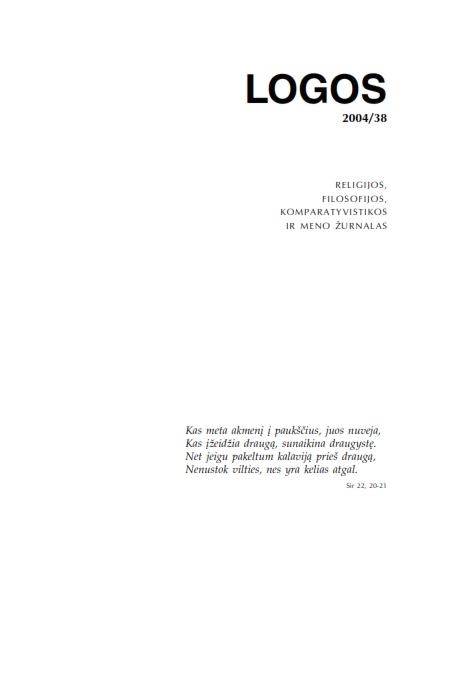Kaip įmanomas sapnų mokslas
How the Scientific Understanding of Dreams is Possible
Author(s): Gintautas VyšniauskasSubject(s): Psychology, Metaphysics, Philosophy of Mind
Published by: Visuomeninė organizacija »LOGOS«
Keywords: Dreams; science; psychology; naturalism; phantasms; causes; signs; Aristotle;
Summary/Abstract: The scientific approach to dreams was pioneered by Aristotle. In the Middle Ages it was employed by Alfarabi, Boethius of Dacia and Thomas Aquinas. The article starts with a consideration of Boethius’ understanding of dreams, and later compares it with the one of Thomas Aquinas against the background of S. Freud’s and C. G. Jung’s attitudes. The main difference between Boethius’ and Aquinas approach is that accepting the Aristotelian theory of dreams the former negates any possible scientific value of the traditional religious interpretation of dreams, whereas the latter combines both. In the Middle Ages the attitude of Boethius was beneficial for the development of science but finally it led to naturalism and reductionism in psychology which in the 20th century was severely criticized by E. Husserl and C. G. Jung. Now the scientific understanding of dreams is possible as seriously taking into scientific account the content of religious interpretations of dreams. From this perspective, the approach of Thomas Aquinas seems more promising than that of Boethius.
Journal: LOGOS - A Journal of Religion, Philosophy, Comparative Cultural Studies and Art
- Issue Year: 2004
- Issue No: 38
- Page Range: 41-50
- Page Count: 10
- Language: Lithuanian

